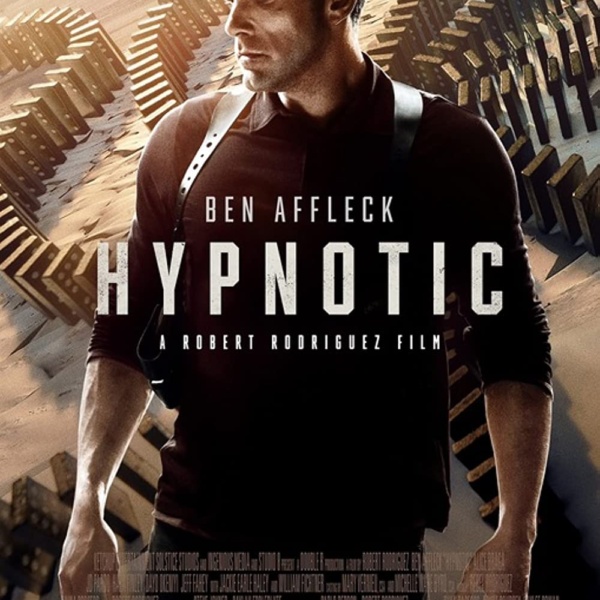Christopher Nolan’s “Oppenheimer” is a cinematic masterpiece that dives deep into the life of J. Robert Oppenheimer, famously known as the “father of the atomic bomb.” This film, inspired by the renowned biography “American Prometheus” by Kai Bird and Martin J. Sherwin, brilliantly navigates through Oppenheimer’s towering achievements and his dramatic fall from grace. Cillian Murphy shines in the lead role, capturing the brilliance, emotional depth, and complexities of Oppenheimer with a compelling performance.
The star-studded cast, including Emily Blunt, Matt Damon, Robert Downey Jr., and Florence Pugh, adds layers of intrigue and humanity to the historical figures surrounding Oppenheimer. Their performances, combined with the talents of Josh Hartnett, Casey Affleck, Rami Malek, and Kenneth Branagh, create a rich, immersive world.
Nolan’s move from Warner Bros. to Universal Pictures didn’t slow him down; it seemed to embolden his creative vision. He pushed the envelope with groundbreaking use of IMAX 65 mm and 65 mm large-format film, even incorporating IMAX black-and-white footage, setting a new standard for visual storytelling. His commitment to practical effects over digital enhancements adds a tangible, authentic feel to the movie.
The musical score by Ludwig Göransson perfectly matches the film’s epic scale and emotional intensity, while Jennifer Lame’s editing keeps the story tight and engaging. “Oppenheimer” marks Nolan’s first R-rated film since “Insomnia,” reflecting its mature and uncompromising look at its subject.
The film’s premiere and its concurrent release with “Barbie” sparked the “Barbenheimer” phenomenon, encouraging audiences to enjoy both movies as a double feature. This unique strategy, along with the movie’s captivating storytelling and visual splendor, led to its monumental box office success. It broke records as the highest-grossing World War II-related and biographical film, earning widespread critical acclaim.
“Oppenheimer” is more than just a testament to Nolan’s directorial genius; it’s a thought-provoking examination of the moral dilemmas surrounding scientific discovery and its impact on humanity. The film’s numerous awards and nominations, including at the Golden Globes, BAFTAs, and Oscars, underscore its significance as a monumental piece of cinema that not only offers a riveting look at a key historical figure but also ponders the immense power and danger of human innovation.
Plot
In the early 20th century, a 22-year-old J. Robert Oppenheimer finds himself wrestling with anxiety and longing for home while diving into the world of experimental physics at Cambridge’s Cavendish Laboratory under Patrick Blackett. Frustrated and acting on impulse, Oppenheimer leaves a poisoned apple for Blackett but rethinks his rash decision. A visiting Niels Bohr steers him towards theoretical physics at Göttingen University, marking the beginning of a significant pivot in Oppenheimer’s career.
Earning his PhD, Oppenheimer crosses paths with Isidor Isaac Rabi and later Werner Heisenberg, sparking a quest to bring quantum physics advancements back to the U.S. At the University of California, Berkeley, and Caltech, he embarks on this mission, all while navigating personal turmoil, including a marriage to Katherine “Kitty” Puening, an affair with Jean Tatlock, and the latter’s tragic suicide.
The discovery of nuclear fission in 1938 propels Oppenheimer into a pivotal role as the Manhattan Project’s director, tasked with developing an atomic bomb amidst fears of Nazi Germany achieving the same. With a team including Rabi, Hans Bethe, and Edward Teller, Oppenheimer tackles the ethical and scientific challenges of atomic energy, consulting with Albert Einstein over concerns of a potentially catastrophic chain reaction.
World War II’s end brings moral conflict for Oppenheimer and his team, torn over the atomic bomb’s use against Japan—a decision that ultimately hastens the war’s conclusion but leaves Oppenheimer with deep regrets and guilt, especially after a confrontational meeting with President Harry S. Truman.
In the post-war era, Oppenheimer’s advisory role in the Atomic Energy Commission (AEC) and his stance against nuclear proliferation draw controversy, especially against the backdrop of the Cold War and Edward Teller’s push for a hydrogen bomb. His past communist affiliations become the focus of a security hearing orchestrated by AEC Chairman Lewis Strauss, aiming to diminish Oppenheimer’s influence. The hearing, marred by manipulated testimonies and Teller’s damning statement, results in Oppenheimer’s clearance revocation, tarnishing his reputation.
Years later, the tide of public opinion shifts slightly when Strauss’ manipulations are exposed during a Senate hearing, and in 1963, President Lyndon B. Johnson awards Oppenheimer the Enrico Fermi Award, symbolizing a form of redemption. Yet, a reflective flashback to a conversation with Einstein underscores Oppenheimer’s profound insight into the long-term implications of nuclear armament—a self-perpetuating cycle of destruction he inadvertently helped initiate.


